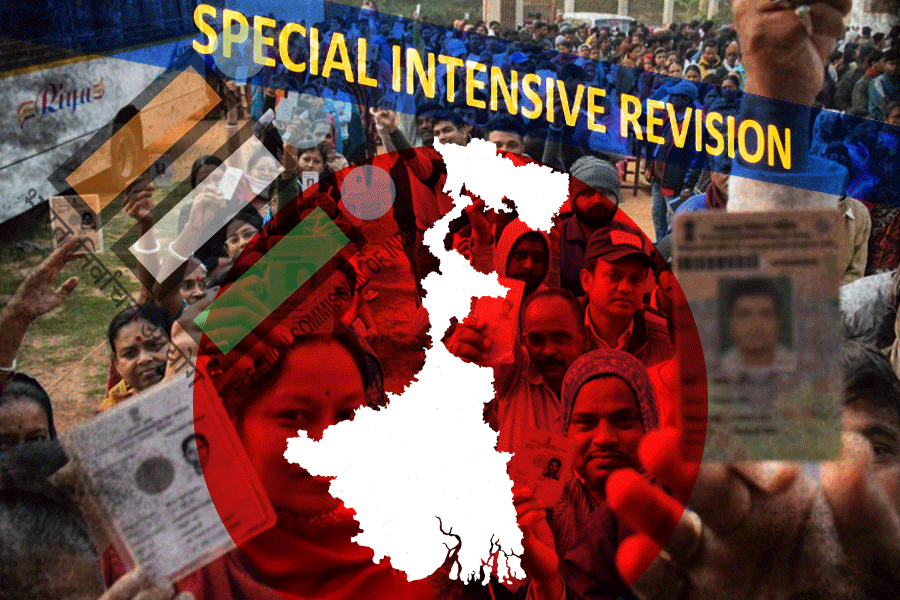The ruling DMK in Tamil Nadu has moved the Supreme Court for quashing the Election Commission of India's October 27 order to conduct the special intensive revision (SIR) of electoral rolls in several states and Union Territories on the ground that it would disenfranchise lakhs of voters across the country, besides affecting the citizenship rights of several others.
Other than Tamil Nadu the SIR is also being conducted in Uttar Pradesh, Chhattisgarh, Goa, Gujarat, Madhya Pradesh, Rajasthan, Andaman and Nicobar Islands, Lakshadweep, Kerala and Puducherry. Bengal, Kerala, Tamil Nadu and Puducherry are due for polls next year.
The DMK has challenged the constitutional validity of the SIR and sought its quashing on the ground that it violates Articles 14 (equality), 19 (freedom of speech), 21 (life and personal liberty), 325 (electoral rights of voters)
and 326 (dealing with Lok Sabha/state Assemblies) of the Constitution as well as provisions of the Representation of the People Act (ROPA), 1950, and the Registration of Electors Rules, 1960.
“The SIR and the orders, if not set aside, can arbitrarily and without due process disenfranchise lakhs of voters from electing their representatives, thereby disrupting free and fair elections and democracy in the country, which are part of the basic structure of the Constitution.
“The documentation requirements of the directive, lack of due process as well as the unreasonably short timeline for the SIR in Tamil Nadu make this exercise bound to result in removal of names of lakhs of genuine voters from electoral rolls leading to
their disenfranchisement,” the petition filed through advocate Vivek Singh by R.S. Bharathi, organising secretary of the DMK and a former Rajya Sabha member, said.
According to the petitioner, there was no need for the current SIR as a special summary revision was conducted in Tamil Nadu between October 2024 and January 2025, which addressed issues such as migration, deaths and deletion of ineligible voters.
The existing electoral roll in Tamil Nadu was updated and published on January 6 under the special summary revision, and has been updated since then, it said.
“The respondent (EC) is seeking to supplant the existing statutory framework, which already governs the preparation and revision of electoral rolls. The manner in which the SIR has been directed to be conducted is found neither in ROPA nor the 1960 Rules, and the said exercise departs from the procedure prescribed therein and is therefore ultra vires of the same.
“Section 28(3) of ROPA requires all rules to be notified
in the official gazette and laid before Parliament. No such notification has been issued for the SIR, and the same has not been laid before Parliament. Therefore, the SIR is without the force of law and lacks statutory basis,” the petition said.
The DMK has submitted that the poll panel has, through the notification, claimed the power to assess the citizenship of individuals, a power that rests solely with the Union government, and the poll panel is vested with only the power to prepare and revise electoral rolls for the conduct of elections.
“By imposing a citizenship-like burden of proof, the SIR appears to be acting beyond its statutory purpose, effectively functioning as a de facto National Register of Citizens (NRC). Through this exercise, the respondent has reversed the settled presumption of legitimacy accorded to an enrolled elector and placed an onerous burden on registered voters to re-establish their citizenship, without adequate notice.
“...Given the quasi-judicial character of such an exercise, it would require careful and detailed scrutiny of evidence and cannot be conducted by the respondent summarily,” the petition stated, adding that the SIR is bound to create confusion as seen in Bihar.











